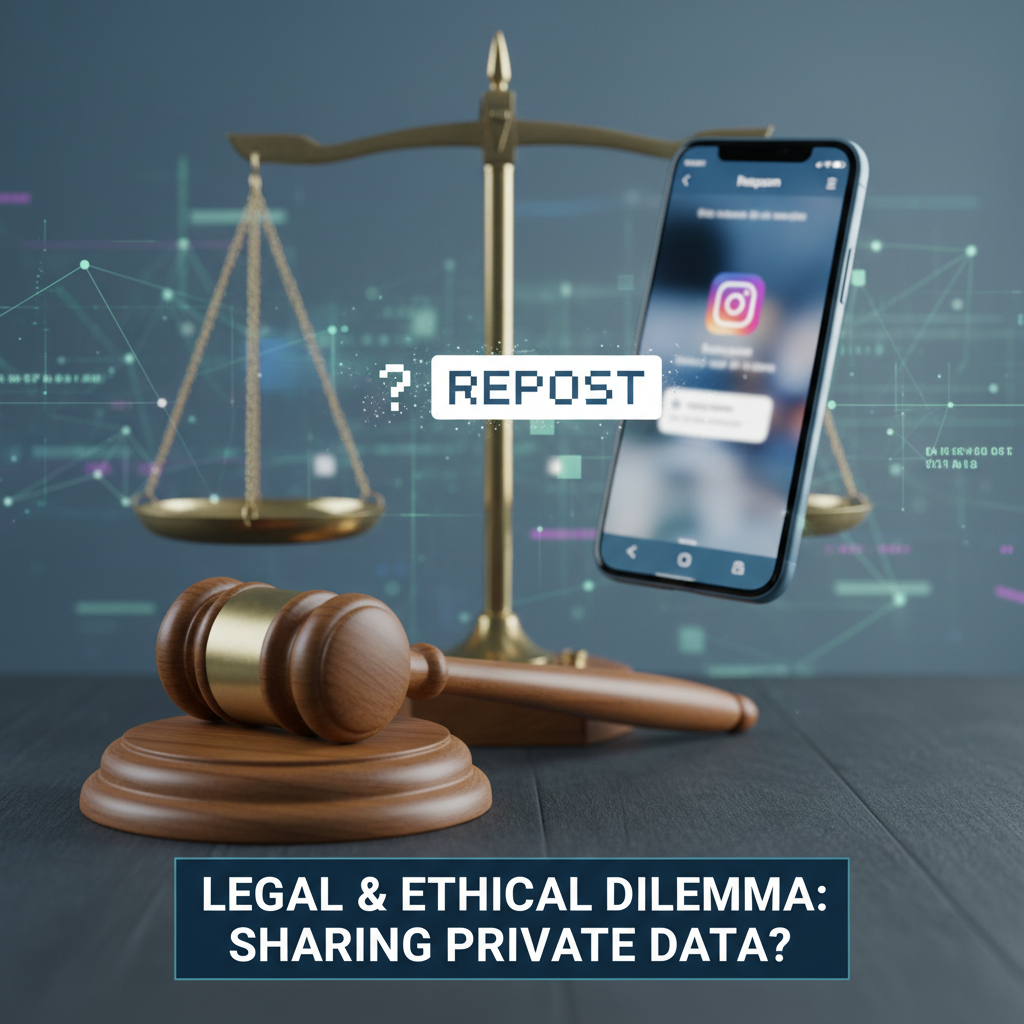Can You Repost a Private Instagram Post Legally and Safely
Learn the rules, legal risks, and ethical considerations of reposting private Instagram posts, plus best practices for handling private content safely.

Can You Repost a Private Instagram Post Legally and Safely?
Ever come across a fantastic photo or video on a friend’s private Instagram account and wondered if you could share it? With the rise of social media and content resharing, questions like "can you repost a private Instagram post" have become increasingly common. Reposting from a public account already involves legal and ethical considerations, but private posts introduce a whole new layer of rules, risks, and responsibilities for both the reposter and the creator.
In this guide, you’ll learn exactly how Instagram privacy works, what the platform’s rules say, the technical limitations on sharing private posts, the legal and ethical implications, and the best practices for handling private content respectfully.

---
Understanding Instagram Privacy Settings
Instagram offers two main types of account privacy: public and private.
- Public Account – Anyone can view posts, Stories, and Reels—even without following you (unless you’ve restricted them individually).
- Private Account – Only approved followers can view your posts and Stories. Non-followers see only your bio, profile picture, and follower/following counts.
Private mode is designed to give you control over who sees your content—vital for maintaining online privacy.
---
Public vs. Private Content Visibility
The difference between public and private content is all about who can access your posts and how they can interact with them.
| Aspect | Public Account | Private Account |
|---|---|---|
| Profile Visibility | Visible to all | Limited to approved followers |
| Post Visibility | Anyone can view | Only approved followers see posts |
| Discoverability | Can appear in hashtags & explore | Hidden from non-followers & hashtags |
| Reposting Ease | Reshareable via Instagram tools | Manual methods required—and restricted |
Private content is specifically designed not to be redistributed outside the intended audience without permission.
---
Instagram’s Terms of Service on Sharing Others’ Posts
Instagram’s Terms of Use and Community Guidelines clearly state: Always respect other people’s rights, including copyright and privacy. Instagram provides sharing features like “Share to Story” or “Send via Direct Message” only for public content, and even then within certain limits.
Private posts can’t be reshared outside the approved follower list using native tools. Distributing such content without consent can breach copyright, privacy laws, and Instagram’s own policies—potentially leading to penalties or account suspension.
---
Technical Limitations on Sharing Private Content
Attempting to share private posts via Instagram’s built-in tools quickly highlights platform safeguards:
- The paper airplane (share) icon is absent for Stories from private accounts unless you’re tagged and the creator has enabled sharing.
- The “Add post to your story” option is disabled for feed posts from private accounts.
- Private post URLs are inaccessible to non-followers and display a content unavailable message.
![diagram]()
The only workarounds involve external actions like screenshots, screen recordings, or third-party apps—methods that are against Instagram’s rules and may be illegal.
---
Legal and Ethical Implications of Reposting Private Content
Reposting private content without consent carries several risks:
- Copyright Infringement – The creator owns the rights to their original work.
- Privacy Violations – Sharing private moments without permission may infringe on personal rights in many jurisdictions.
- Breach of Trust – Violates the implicit trust between followers and the content creator.
- Platform Enforcement – Instagram can remove content or disable accounts for violations.
Ethically, respecting the creator’s intent is central to healthy online interactions.
---
Risks of Using Third-Party Apps or Screenshots
Some apps claim they can bypass privacy protections—but using them is risky:
- Security Threats – Giving away your Instagram login can lead to hacks.
- Malware & Viruses – Sideloaded apps can harm your device.
- Legal Issues – Circumventing technical measures may violate anti-hacking laws.
- Trust Damage – Even a screenshot shared outside the intended audience breaks the original trust.
---
How to Request Permission from the Original Poster
The safest, most respectful way to share private content is to ask directly:
- Send a Friendly DM – Start by explaining what you liked about the post.
- Specify Purpose – Tell them where and how you want to share it.
- Give Credit – Tag them or mention their name in your repost.
- Get Clear Consent – Even a written “yes” in a DM can serve as permission.
Mutual respect ensures a smoother, more positive outcome.
---
Alternative Strategies for Sharing Without Violating Privacy
If you want to share the sentiment without breaching privacy:
- DM to Mutual Followers – Share the post only with people who already have access.
- Describe the Content – Mention the topic without revealing the actual image/video.
- Create Inspired Content – Make your own photo or post on the topic and credit the inspiration.
- Ask for a Public-Friendly Version – Some creators will share a public version for broader reposting.
![content-sharing]()
These methods help you honor both the creator’s intent and your desire to share.
---
How Creators Can Control Reposting
If you’re a creator and want to manage reposting:
- Adjust Sharing Settings – In Settings > Privacy > Story, toggle whether people can share your Stories.
- Use Watermarks – This can deter unauthorized use.
- Limit Audience – Use Close Friends or smaller groups for sensitive posts.
- Curate Followers Regularly – Remove accounts you no longer wish to share with.
Taking preventative steps keeps control firmly in your hands.
---
Summary: Best Practices for Respecting Instagram Privacy
So, can you repost a private Instagram post?
The short answer: Only with explicit permission from the creator.
Key takeaways:
- Learn and respect the differences between public and private settings.
- Never misuse third-party tools or screenshots to bypass privacy.
- Always ask for permission with clear communication and proper credit.
- Consider alternative sharing approaches that maintain privacy.
- As a creator, take advantage of the tools to manage who can see and share your content.
By following these best practices, you safeguard trust, comply with laws, and foster a healthy online community.
Want to ensure your Instagram use is always on the right side of the rules? Keep learning, ask before sharing, and make respect your top priority.


